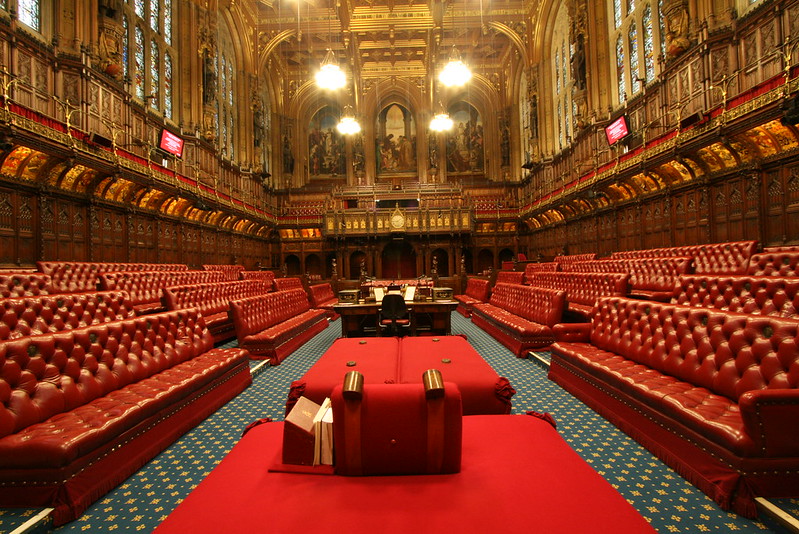
When Sir Keir Starmer unveiled his new plan to essentially move towards abolishing the House of Lords, it was only a matter of time, in my view, until we would discover it would be replaced with one stacked in his favour. It is reported that Starmer wishes to give Scottish voters more representation in this new parliament, and thus more power. This comes, not because the Scottish people have had a significant population boom, nor have they relinquished their own de facto independent devolved state and thus need better representation, but instead it is Starmer simply bribing Scottish voters with more power, so his party can win future elections. Ironically, this ‘bribe’ and power grab is being lavished with all the feel-good empty aspirations of our time; they speak of ‘democracy’ and ‘reform’ while explicitly signalling a deep regression back to the Blairite politics of almost two decades ago. Clearly, what Britain needs is more Blairite reforms; devolution in Scotland has worked wonders in quelling nationalist sentiment in that nation. Alas, the spectre of more of these high-minded ‘reforms’ returns to haunt the political landscape; thus, I shall now focus on this issue of the House of Lords.
The House of Lords has always been an anathema to the British left, who consider it to be filled with elitist snobs who snicker and jeer at homeless orphans as they walk into a private white-tie event at a Renaissance art gallery. It is a rare sight to find a left wing person willing to defend the institution – unless they are running in a contested seat. The Blairite faction, regardless of their own snobbery about this issue, had a single idealised model they were basing their entire mode of government on: the American system. The fact that there existed a country, that they, the high-minded progressive, lived in, whose laws and structure didn’t basically copy and paste the American constitution was a thing of night terrors. How dare Britain not have an overreaching, overpowered Supreme Court; how dare Britain not conform to the model of a federal system; how dare Britain have a second chamber of Parliament that was not filled with corrupt, polarising, cynical politicians who are only out to win the next election – essentially, how dare we not be America! Yet, it is almost beating a dead horse to point out that using America as some great model of democracy in action is perhaps… somewhat questionable considering the events of recent years, with a large part of its problems coming from these very ‘democratic’ institutions that Blairites wished to and did tack on to our constitution.
The House of Lords is selected undemocratically, but that does not mean its nature is wholly unimportant for a functioning democracy. Representation is one of the core aspects of any functioning democracy. In recent times, it has become an increasingly important aspect of political discourse to find those who are not represented and attempt to represent them, as it should be. Yet, the House of Lords also exists to serve a representative function. Its function is to offer a voice to two groups that are increasingly ignored in our society, no I do not mean aristocrats and the otherwise wealthy, as they already own both parties regardless of ideals of democracy; I mean the dead and the yet to be born. Edmund Burke argued that society is made up of three major constituencies: the living, the dead, and the yet to be born. Popular democracy, whether it be in the form of referendums or elections, all serve and address the issues that affect the currently alive, often at the expense of those who are yet to be born. A contemporary example of this is the issue of climate change. It is perfectly fine, according to politicians, to harm the planet for future generations because at least we in the currently alive don’t have to suffer. This is an exploitatory attitude; the unborn cannot express a voice of resistance. They have no votes to cast in our electoral system. Therefore, they hold no power in a purely elected democratic system, but surely their interests also matter and thus they should have a form of representation. The House of Lords, prior to the Blairite reforms, was the institution that could do that. By abolishing the only institution that could genuinely express this voice of the mute generations that shall follow us, Starmer will cast future generations aside so that present generations can continue to monopolise our increasingly sparse resources, with no intention to conserve anything for those future generations.
Elective democracy is important, but democracy is not simply about increasing the number of elected officials or voting in elections, but allowing all those who have a genuine interest in the future of society to have a voice, so that we can collectively decide our common future. When we don’t allow a true voice of the unborn and dead to be heard, we do not act democratically, but selfishly. When we are high-mindedly pontificating about the abstract and theoretical value of ‘democracy’ being improved by getting rid of the House of Lords, I think it is wise to point to America and ask, has its democracy actually substantively been improved for its having an elected second chamber? Instead, the House of Commons is the right place to reform, in terms of how it is constituted, whether it be PR or otherwise, and that is how a better democracy will come into place, not by dissolving the House of Lords.



Average Rating